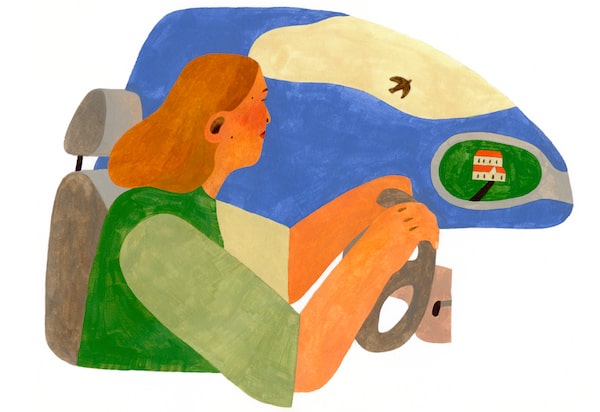First Person is a daily personal piece submitted by readers. Have a story to tell? See our guidelines at tgam.ca/essayguide.

Illustration by Mary Kirkpatrick
I’m an only. I’ve always been an only. Other people have brothers and sisters with whom they battled, shared both good and bad and matured, but not me. I’m an only.
As a child I watched my best friend and her sister fight – seemingly all the time – and I often thanked my lucky stars that I didn’t have to go through such stress. When I went home it was quiet. I could go to my room and do homework or read, untroubled by sibling disruption, and I always liked it that way; it was my existence. I was never lonely.
My parents were reasonable people and we got along well because we respected each other’s opinions and listened to each other’s reasoning on issues. Was I spoiled? I don’t think so. I had chores, mutually agreed-upon curfews and well-understood responsibilities.
As I grew up in a small town – Fernie, B.C. – family entertainment frequently involved going to the homes of family friends for dinner. Often, as the one child there, I learned to be part of the adult world, becoming comfortable in an adult milieu from an early age. It was interesting to hear what adults discussed. Some hosts kindly tried to include me in the conversations, asking me specific questions or teasing me. I was appreciative, but even if that didn’t happen, I was never bored. I blended. Onlys do a lot of watching and listening.
It’s not that I spent my whole childhood alone – far from it. I had a wonderful group of friends and we met, swam, played and, later as teens, danced, had house parties, and met at the playground swing in the evenings to simply hang out. But afterward, I could return to the peace and quiet of home. I could choose when to be on my own. It seemed to me that I had the best of both social and private worlds.
Just once, when I was about 16, I crossed swords with my parents. My gang of friends had made plans to drive to the lake on a Saturday (about a 40-minute drive) and I hadn’t properly communicated this adventure. I was a teenager, after all.
My father was miffed and, to my surprise, wouldn’t give me permission to go. I had never experienced this sort of reaction before. Looking back, I’m sure he, as a parent, wanted to nip the non-communicative teen syndrome in the bud and let me know it was not okay to be secretive. As I had never intended to hide anything, I was dismayed by what I thought was his over-reaction.
I had always been a good kid and was amazed at his tough position. My friends were also good kids and, though we were all new drivers, we were responsible. I remember tears and pleading and apologizing – and my relief when he finally relented. From my present perspective, I now realize my parents were also onlys, in the sense that they had only one chance at parenthood. Each step for them was also a first. They had no other children to help them in handling my life’s stages.
As I got older and moved away from home, there were both good and bad sides to being an only. On the one hand, I had learned to make my own decisions, so moving to adulthood was just another step along the way; on the other, there were some decisions that a sibling’s point of view could have usefully informed.
What to do with parents’ health issues? Their living arrangements? How to keep abreast of their physical and mental well-being when you lived 900 kilometres away? Luckily, when those issues arose, I was able to turn to my husband for input and support.
I had always said in jest that I wouldn’t get married unless that special man could provide me with a dishwasher … and some brothers and sisters. Fortunately, I found just the guy to meet both those requirements. I saw his special closeness to his younger sister, and how he and his two siblings pulled together when their mother had a stroke. They could jointly make the necessary arrangements for her care.
When the time came to bring my mother into our home and, later, transfer her to an auxiliary hospital, there was only me to make those big decisions. Although I was and am grateful for the unconditional support of my spouse, the burden of that decision-making was a heavy weight. I would have welcomed the sharing of that responsibility with a sibling.
So on balance, how has being an only shaped my life? I am strong-willed and opinionated but try not to be selfish. Perhaps I’m a little bossy. I focus on life’s trajectory, on right versus wrong – from my point of view, of course. I am a good observer and listener, not easily led. Am I aloof and anti-social? No. Though more introvert than extrovert, I’m comfortable in my own skin and enjoy my own company. Being an only creates self-reliance. It must.
Colleen Tobman lives in Calgary